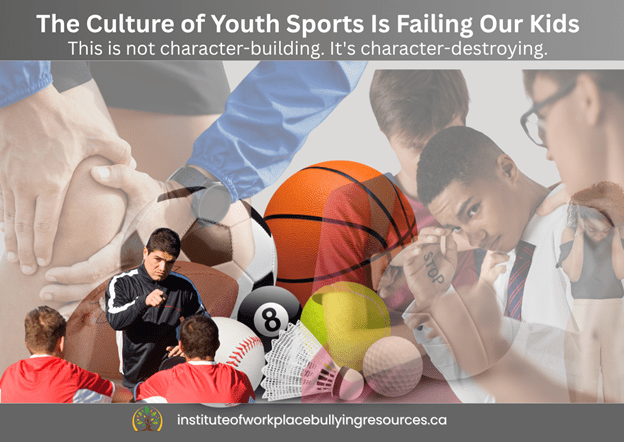Restoring Empathy and Integrity in Youth Sports
When my son broke his leg at a hockey tournament, we had an eye-opening conversation about his return to school. His biggest worry wasn’t the injury itself—it was how his classmates would treat him. He told me, “I just don’t want to be treated differently, like I look weak.”
That moment hit me hard. Teenagers are deeply uncomfortable with vulnerability, so much so that they hesitate to ask for help when they need it. The pressure to compete—on and off the ice—is overwhelming, pushing them to prioritize winning over teamwork, and toughness over empathy.
But what happens when a player gets injured? When they’re temporarily sidelined? Instead of rallying around their teammate, others often resort to bullying, masking their own insecurities with exclusion and mockery. They justify it as harmless joking, but the truth is, it stems from something deeper—fear, a lack of character, and a disconnect from their own values.
Competitive sports should be about support, camaraderie, and resilience. Yet, too often, young athletes are conditioned to believe that if they can’t perform, they don’t matter. This isn’t character-building—it’s character-destroying.
Coaches and teachers must actively engage in the dynamics unfolding in locker rooms and classrooms. Instead of allowing toxic behaviors to persist, they must step up as the protectors and role models young athletes need. True player development goes beyond physical skill—it requires fostering a culture of dignity, trust, and respect within the team.
Watching the news, seeing hockey players on trial for sexual assault, makes this issue painfully real for me as a parent of a teenage hockey player. This culture of disrespect doesn’t suddenly emerge in a moment of reckless celebration—it has been festering for years.
The traditional, hard-nosed sports mentality isn’t shaping strong, respectful, ethical adults. Instead, it’s fostering aggression, inflating egos, and teaching emotional repression. If we want a better future for our kids, these outdated approaches must change—immediately.
Many of us grew up in a generation that instilled the idea that we should not challenge authority or speak up. We learned to actively avoid arguments, stay disengaged, and ensure we’re present but not heard. Questions and curiosity were discouraged, leading many to struggle with self-worth, self-insight, and a solid sense of identity. We learned to stay quiet, shrink away, and avoid rocking the boat for fear of the impact to our place on the team. For some, being assertive or confident still feels uncomfortable because society has framed those traits as disrespectful or inappropriate.
Well, that must change.
If we want our children to survive—and thrive—in today’s world, we need to raise them differently. We need them to ask questions, challenge us, and stay curious. We need to be engaged and not dismissive when they come to us. We want them to be assertive, not aggressive, and confident, not arrogant. We want them to stand before harmful issues, not behind them.
The change doesn’t start on the field. It begins with us, the adults.
The greatest strengths an adult can role model is knowing yourself, accepting yourself, and loving yourself, flaws and all. They should also have healthy boundaries, believe they matter, and own their self-worth without apologizing. Let’s commit to being role models for our youth.
Our youth need to see this. They need to learn that confidence and assertiveness are not arrogance; they are survival tools. These are the very skills they’ll need to navigate the difficult, demanding, and often unfair world we’re sending them into.
When we model self-respect, we permit them to claim their own.
When we lead with empathy, we teach them not to fear vulnerability.
When we lift others, we build a generation that won’t tear people down to feel powerful.
We’re not just coaching sports. We’re shaping humans.
Let’s build them up for success, not by toughening but by developing their inner resources: their values, morals, integrity, dignity, and everything that truly matters. If you want them to succeed in life, help them learn that their worth is much more than just their athletic ability or dedication to work. Their worth is grounded in who they are: their self-respect, their humility, and their humanity.
And if we genuinely want to prevent bullying in the workplace, let’s start where it begins,
by teaching emotionally intelligent, trauma-informed bullying prevention programs in schools and ensuring they’re implemented in sports academies, too.
Shauna Briscoe and Linda Crockett
CIWBR Trauma-Informed Consultants and Trainers
The Canadian Institute of Workplace Bullying Resources (CIWBR) offers these courses and more. Contact us at psychologicalsafetyfirst@gmail.com
Our focus is on building emotional intelligence while learning about prevention, early or crisis intervention, and repair options regarding psychological hazards. Our goal is to help you create psychologically safe sports and work environments.


